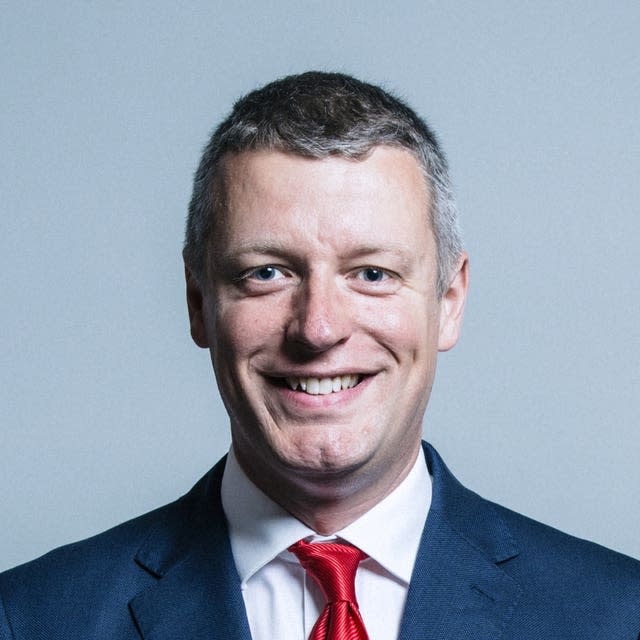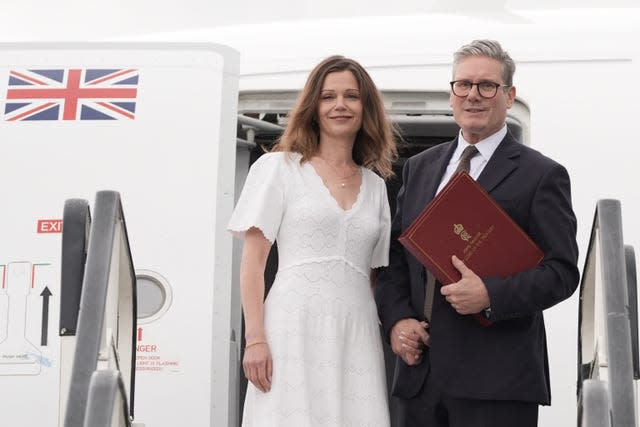Defence review should be done in a year, minister says amid pressure on spending
The armed forces minister has said the Government will aim to complete its defence review in less than a year, amid warnings from former military chiefs that Britain is unprepared for the threat of war.
Luke Pollard insisted the new administration would work “at pace” to finish the major assessment, which Sir Keir Starmer has said needs to take place before decisions are made on raising defence spending to 2.5% of GDP.
Appearing on Wednesday’s morning broadcast round, Mr Pollard said the Labour manifesto set out a timescale of a year and the Government wants to deliver the review “faster than that because of the urgency of the situations we’re facing”.

“The Prime Minister’s been very clear, he wants this review delivered at pace,” he told Times Radio.
He said he had been “reassured” by speaking to military officers that “we have the ability to defend Britain” but told BBC Radio 4’s Today programme: “What we want to do is to make sure that we’re filling the gaps to deter any future aggression and defeat it if necessary.
The review will be “Nato-first” and focus on “our unshakeable commitment to the North Atlantic, to the Europe area, to make sure that we’re keeping not only the UK safe but keeping our allies safe,” he said.

The minister denied Labour had not done “any homework” and determined which areas were most in need of funding before entering power.
On being told the party had “not looked at what needed to be spent where” during an appearance on Sky News, he said: “That’s not true … You’ll know that in opposition you don’t get access to the classified briefings, the intelligence that would be required to set out what shape and size our armed forces should be.”
Sir Keir is facing pressure from opposition critics and former military chiefs over the timescale of decision-making on funding, with some arguing it cannot wait given the gravity of threats facing Britain.
The Tories, who said they would increase defence spending to 2.5% of GDP by 2030 before losing the election, said the approach was “damaging for the armed forces”.
Shadow defence secretary James Cartlidge wrote to his opposite number John Healey demanding “clarity” on funding plans.
In his letter, Mr Cartlidge said: “Our armed forces need the certainty and clarity on their funding in order to plan and prepare for the future. It is necessary to prepare everything from accommodation and benefits for service personnel to ensuring that they are equipped with the latest capabilities, equipment and technology.”

A former colonel in UK military intelligence, Philip Ingram, told the Times newspaper the Government was “playing with fire” because the “threat is now and it will take years to fix the Army, our ammunition stocks, get the RAF and Navy ready”.
Admiral Lord West, a former head of the Navy who was a security minister under a previous Labour government, claimed the new administration was “delaying spending money” by not setting out a plan, which meant “there is no money” for the Ministry of Defence.
Sir Keir has refused to guarantee that he will meet his flagship commitment on defence spending within his first term in office, despite a “cast iron” promise to get there.
The Prime Minister, who will meet US President Joe Biden and other Nato leaders on Wednesday at a summit to mark the alliance’s 75th anniversary, is pressing for European nations to increase funding.
But decisions on reaching the UK’s goal of spending 2.5% must follow the wholesale review, to be launched next week, and comply with the Government’s strict “fiscal rules” on spending and borrowing.
The prospect of Donald Trump being returned to the White House in November’s election is a cause for concern in the alliance given his past criticisms of Nato and his threats to reduce aid to Ukraine.
European Nato states face shouldering a greater burden as part of a drive to “Trump-proof” the alliance should the Republican candidate return to office and weaken US commitment to the bloc.
Sir Keir said: “We are committed to the 2.5%, as I have said before the election and I say again after the election. That is obviously subject to our fiscal rules, but the commitment is there.”


